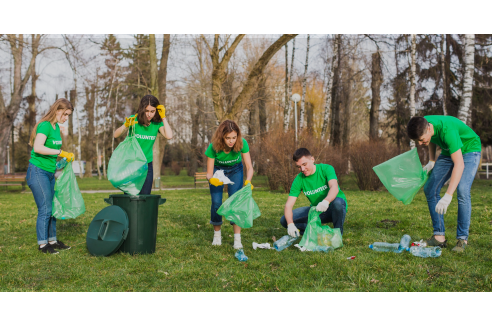Living with hoarding disorder creates profound challenges that extend far beyond the individual struggling with the condition. When one family member experiences hoarding tendencies, the entire household faces significant changes in their daily lives, relationships, and emotional well-being. The overwhelming presence of accumulated items transforms homes from spaces of comfort and connection into sources of stress and conflict.
The impact of hoarding on families often starts subtly but grows more severe over time. Understanding how hoarding affects family dynamics is crucial for several reasons.
Emotional and Psychological Impact on Families
The emotional and psychological toll of hoarding affects everyone in the household. While Hoarding Cleaning Services can address the physical aspects of clutter, the emotional impact requires deeper understanding and long-term solutions.
Growing Family Conflicts
Daily life becomes increasingly difficult as usable living space diminishes. Family members frequently report feeling frustrated when they cannot use rooms for their intended purposes. The financial aspect adds another layer of strain through unexpected expenses like storage rentals, maintenance issues, and emergency repairs.
The most significant sources of family conflict include space management and daily activities:
- Constant negotiations over shared spaces
- Difficulty maintaining basic household routines
- Restricted movement and access within the home
Loss of Functional Living Spaces
The progressive loss of usable space creates significant daily challenges. Family members often struggle with maintaining basic hygiene, accessing essential items, and preserving personal space and privacy. These practical challenges transform into emotional burdens, with children feeling embarrassed about their living situation and spouses experiencing helplessness as they watch their home environment deteriorate.
Impact on Decision-Making and Development
The presence of hoarding behavior affects both immediate and long-term family decisions about home maintenance, social gatherings, and financial planning. Children growing up in these environments face unique challenges in developing healthy organizational skills and understanding normal relationships with possessions. Research shows that these early experiences can influence children’s relationships well into adulthood, often requiring professional intervention to address the lasting effects on the entire family.

Social Isolation and Relationship Breakdown
Social isolation becomes a defining characteristic of families affected by hoarding. As living spaces become increasingly cluttered, families often withdraw from social connections, leading to a gradual breakdown of relationships outside the immediate household.
The Cycle of Social Withdrawal
What begins as occasional reluctance to invite visitors often develops into complete social withdrawal. Family members become hesitant to maintain friendships or connect with extended family, fearing judgment or embarrassment about their living situation. This isolation particularly affects children and teenagers, who may struggle to maintain normal social development and peer relationships.
The most common barriers to social connection include physical limitations:
- Inability to host gatherings or celebrations
- Limited space for visitors
- Restricted access to entertainment areas
Impact on Extended Family Relations
Extended family relationships often suffer significant strain. Regular family gatherings become complicated or impossible, and tensions rise as relatives express concern or criticism about the living situation. Cleaning Services might offer temporary solutions for special occasions, but the underlying relationship challenges persist.
Long-term Effects on Children’s Social Development
Children growing up in hoarding environments often develop complex social patterns that follow them into adulthood. They struggle with bringing friends home, participating in normal social activities, and developing healthy relationship patterns. The shame and secrecy surrounding their home situation can lead to lasting impacts on their ability to form and maintain close relationships.
Need Hoarding Cleanup? We’re Just a Call Away
& Ready to Respond Quickly!

Understanding Relationship Strain and Hostility
Patterns of Hostility Development
Daily frustrations can escalate into deeper patterns of hostility as family members struggle to cope with their living situation. The constant presence of clutter creates an environment where simple disagreements quickly intensify into serious conflicts. Family members might experience feelings of resentment, anger, and helplessness, particularly when attempts to address the situation meet resistance.ng sessions.

Fear of Intimacy and Attachment
Many individuals who hoard develop strong emotional attachments to possessions that can overshadow their relationships with family members. This shift in emotional priority creates deep-seated relationship issues, as loved ones feel they must compete with objects for attention and care.
Mental Health Impact
The continuous strain affects everyone’s mental health. Family members often experience anxiety, depression, and chronic stress. The situation becomes particularly challenging when multiple family members develop different coping mechanisms, leading to further relationship complications and communication breakdowns.
Practical Support Strategies
Effective Communication Approaches
Open, non-judgmental communication forms the foundation of any successful intervention. Family members need to approach conversations about hoarding with patience and understanding, focusing on shared goals rather than criticism or demands for immediate change.
Creating Sustainable Solutions
Lasting change requires a comprehensive approach that addresses both the physical and emotional aspects of hoarding. Professional cleaning services can provide immediate relief, but sustainable improvement depends on addressing underlying emotional needs and establishing new patterns of behavior.
Building Family Support Networks
Developing a strong support network helps families maintain progress and prevent isolation. This includes connecting with support groups, maintaining regular communication with mental health professionals, and establishing clear boundaries and expectations within the family unit.
Building a Path Forward
Creating positive change in families affected by hoarding requires commitment, patience, and a structured approach to both physical and emotional healing.
Recovery involves gradual progress through various stages of change. Families need to recognize that improvement takes time and setbacks are normal parts of the process. The focus should remain on maintaining healthy relationships while working toward practical solutions.
Successfully addressing hoarding often requires a team approach. Mental health professionals can help families navigate emotional challenges, while Cleaning Services provide practical support for creating and maintaining livable spaces.
When it comes to transforming cluttered spaces into harmonious living environments, LifeCycle Transitions stands out as a trusted partner for families dealing with hoarding situations. For families ready to take the first step toward positive change, we provide the support and expertise needed to create lasting transformations in your living space.
